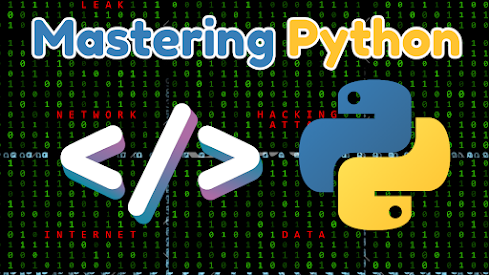🤷♂️Python Mastering Catch All Concept in Only 1 Blog Post🙌
Introduction:
Welcome to our beginner-friendly guide to Python programming! Whether you're new to coding or looking to expand your skills, Python is an excellent language to start with. In this comprehensive guide, we'll cover the basics of Python programming and provide you with code examples to help you get started on your coding journey.
Chapter 1: Getting Started with Python
In this chapter, we'll introduce you to Python and help you set up your development environment. We'll cover topics such as installing Python, using the Python interpreter, and writing your first Python script.
Chapter 2: Python Basics
Next, we'll dive into the basics of Python programming. You'll learn about variables, data types, operators, and control flow structures like if statements and loops. We'll also explore functions and how to define and use them in your code.
Chapter 3: Working with Lists and Dictionaries
Lists and dictionaries are fundamental data structures in Python. In this chapter, you'll learn how to create, manipulate, and iterate over lists and dictionaries. We'll also cover common list and dictionary methods to help you work with these data structures effectively.
Chapter 4: File Handling in Python
Python provides powerful tools for working with files and directories. In this chapter, we'll show you how to read from and write to files, handle exceptions, and work with file objects using Python's built-in functions and modules.
Chapter 5: Object-Oriented Programming in Python
Object-oriented programming (OOP) is a key concept in Python and many other programming languages. In this chapter, we'll introduce you to the principles of OOP and show you how to create and use classes, objects, and methods in Python.
Chapter 6: Introduction to Modules and Packages
Python's module and package system allows you to organize and reuse your code effectively. In this chapter, we'll cover how to create and use modules and packages, as well as how to install and manage third-party packages using pip, Python's package manager.
Chapter 7: Advanced Python Concepts
Finally, we'll explore some advanced Python concepts to take your programming skills to the next level. Topics covered include list comprehensions, generators, decorators, and more.
Conclusion:
Congratulations! You've completed our beginner's guide to Python programming. Armed with the knowledge and skills you've gained in this guide, you're well on your way to becoming a proficient Python programmer. Keep practicing, exploring, and building with Python, and the possibilities are endless!
Appendix: Code Examples
Below are some code examples to illustrate the concepts covered in this guide:
Code Examples For Chapter One and TwoCode Examples For Chapter Five and Six
